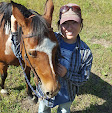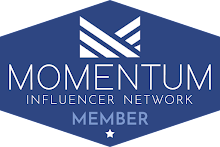Have any of you ever heard of the Illuminati? You might not remember, but most High School graduates have probably learned something about them in school. The Illuminati is the group rumored to have fueled the French Revolution, which is the topic of a couple of noted literary classics, such as A Tale of Two Cities by Charles Dickens, and Les Miserables by Victor Hugo. The Illuminati was basically the European branch of Freemasonry, a radical group that strived for enlightenment through knowledge. I think you get the point.
But in young America, Freemasonry was something very different. From the 1730s to 1813, a man couldn't even be a member of one of the American Freemason lodges if he wasn't an Orthodox Christian. Yes, that was actually a requirement to join a Freemason lodge in America. I bet you never saw that coming!
If you look at American Freemasonic literature from the 1730s to 1813, you would be hard pressed to say that American Freemasons were unchristian, just look at a modal prayer from Ahiman Rezon ( a book of American Freemason literature, named after a Hebrew phrase):
Most holy and glorious Lord God...in Thy name as we assemble and meet together, most humbly beseeching Thee to bless us in all our undertakings, that we may know and serve Thee aright, that all our doings may tend to Thy glory and the salvation of our souls...This we most humbly beg in the name and for the sake of Jesus Christ, our Lord and Saviour. Amen.
I don't think that sounds pagan to anybody.
Here's an excerpt from a sermon preached by Charles Brockwell, in an American Freemason lodge in 1749:
Whoever is a Mason can neither be an atheist, deist, or libertine; for he is under the strictest obligation ...to be a true Christian.
And there are countless similar statements found in numerous early American Freemason texts. Christian based sermons were preached at American Freemason lodges, and no other kind but Christian, Biblically based sermons. Though today at a Freemason lodge even using the name Jesus is forbidden.
But back then, American Freemasonry was strongly Christian. In fact there were so many Episcopal preachers who were members of the Mason lodges that it caused one Congregational minister, Ezra Stiles (1727-1795; an attorney, scientist and president of Yale) to complain:
We see this spirit of Episcopal intrigue already working with great cunning. It has set up and recommended the Fraternity of Free Masons and is pressing them apace to the end of increasing the [Episcopal] Church...The Free Masons have already within about a dozen years, increased from 3 to12 or 14 lodges. [From the Literary Diary of Ezra Stiles].
Wow! Not the usual conspiracy plot associated with Freemasons, is it? It's actually kinda funny.
Now you might be thinking that this isn't what you thought Freemasonry was in early America and you would be right in that train of thought. It wasn't. But, wait a minute! You might be thinking, What about those creepy blood oaths and strange pledges? Well, those were introduced after 1825, when American Freemasonry was already down hill quite aways. But since those were only introduced in 1825, that eliminates the Founding Fathers to being party to such occult practices. Especially when the vast majority of them that pseudo historians claim were Masons, really weren't! Stay tuned for the post explaining the Founding Fathers' association with Masonry; what is and what isn't true.
I hope that I have sparked your interest with these brief posts. Later we will learn about what happened in 1813 that changed American Freemasonry from the picture I tried to show you today to the image we commonly have now. I hope that this will convince you, remind you, or re-affirm you, that the Founding Fathers were not godless Freemasons, but men of strong Christian character who ought to be admired.
Subscribe to:
Post Comments (Atom)












No comments:
Post a Comment
I love to hear from you!